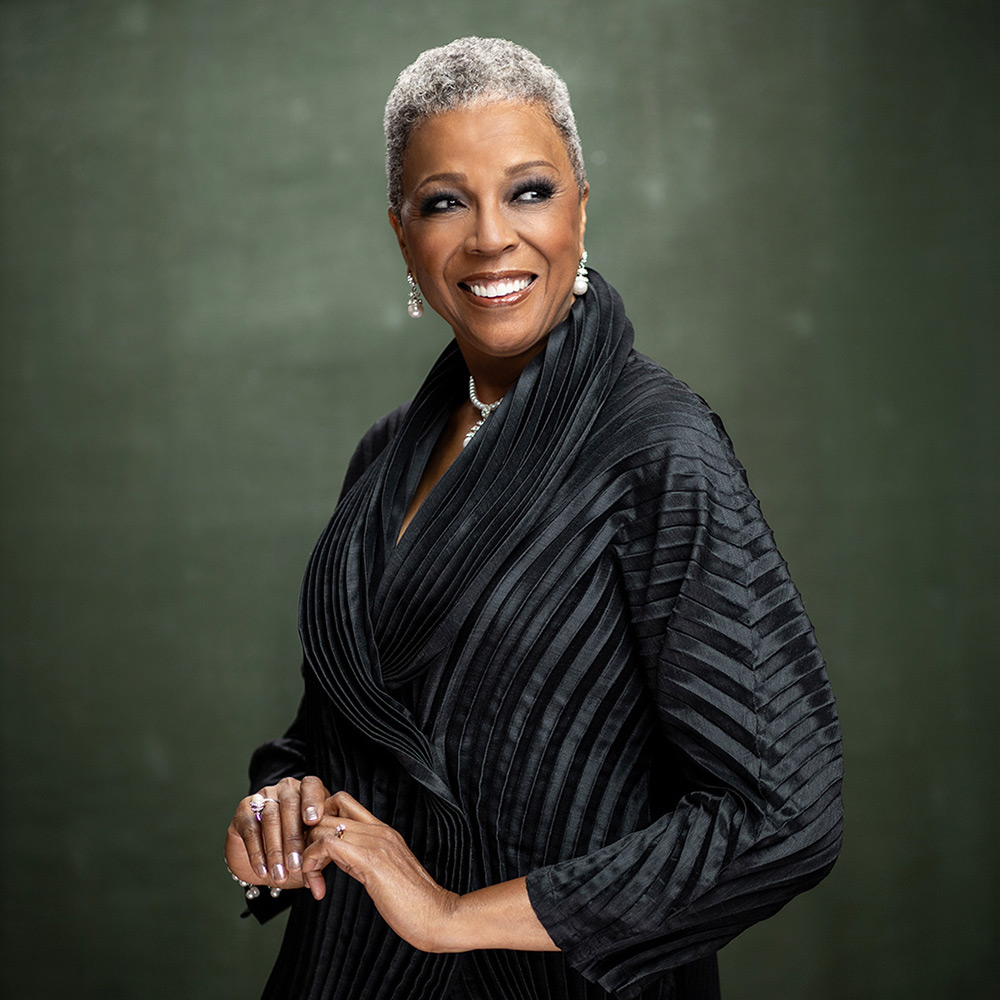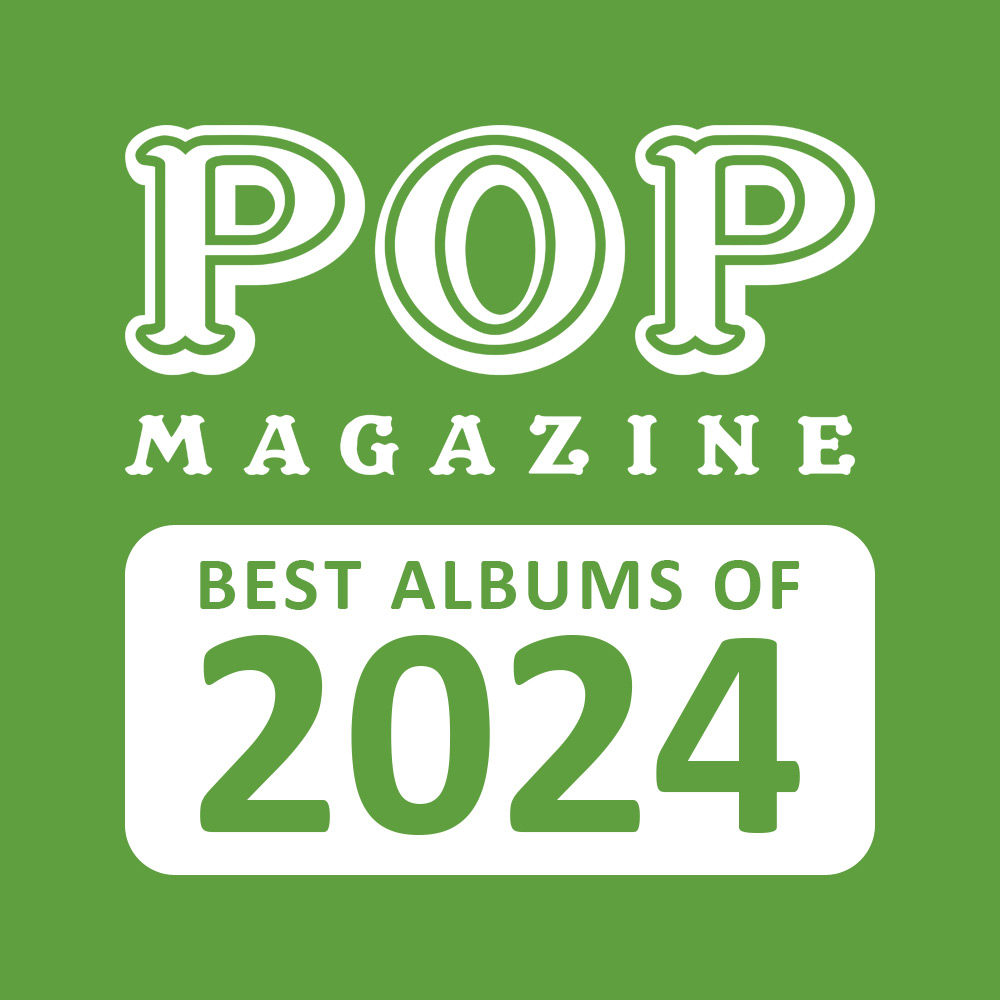Interview: The Promise of Dee Daniels

Dee Daniels is a master of many trades. This genre-crossing American singer, songwriter, musician and educator has impacted the lives and careers of fellow musicians and fans alike for decades. Her ability to command a song or a stage has enabled her to work with some of the greatest artists in music and has also led her to a successful recording career. Earlier this year, she won Album Of The Year honors at the 5th annual Pop Awards for her most recent LP, “The Promise”, a multi-award-winning gospel project that spoke to her life, perspective and her successful battle with cancer. Not choosing to rest on her laurels, Daniels is preparing a new album entitled “Let It Shine! Let It Shine!”, led by the first single which is a cover of the Prince classic “Sometimes It Snows In April”. Dee Daniels is releasing her version of the song today.
→ Listen to Pop Magazine’s playlists on Spotify
Keivu Knox: First things first. Congratulations on your most recent release, the award-winning album “The Promise”. Do you recall what you were thinking about as you were constructing the album?
Dee Daniels: The songs actually came to me while undergoing treatment for breast cancer. After the surgery which also included reconstruction, I began meditating. Through meditation I had some incredible visual experiences that are still as vivid today as they were in the moment they occurred. They were extremely instrumental in creating a healing state of mind. There were hundreds of people, family, friends, and fans, who prayed for me. Often they would encourage and show support by reminding me that God would see me through. They’d tell me to think about all the songs I would write about it as a result of the experience. As I sat in the chemo suite being infused I thought “What the heck are they talking about – write songs?” Alas, they were right. Through meditation, the songs started coming and did so frequently. As a matter of fact, they were coming so rapidly that I had to turn on my phone’s voice memo to be sure I remembered all of the lyrics and melodies. After the meditation I would immediately sit down at my piano to start figuring out chords and structure. By the time I had completed the cancer treatment I had a lot of new material. At that point I knew I had to do something with it all. Those songs were inspired by the cancer experience, and that included the strengthening and expansion of my faith. My desired goal was to record them with the hope the content would inspire others.
Keivu Knox: It is definitely an inspirational project, and knowing what you’ve been through gives the album more depth. The song “Healed” has a double entendre, not only referencing the spiritual healing, but a physical one. Was that your plan for that song?
Dee Daniels: That is interesting that you mention that particular song, because “Healed” was the first song that came to me during my initial meditations. I think it was two weeks after I arrived home from the hospital. In my mind, or in my imagination if you will, I heard that word very faintly like a whisper. I realized that the word was in past tense – “healed”. It was already done. I thought of growing up in church when the elders would talk about hearing the word of God sounding like a “still small voice”. For me it was emanating from just above and behind my right ear. Daily it continued to say “healed”. As days and months passed, it progressively got louder and louder to the point where I began to recognize and understand it as being a message from God, Source, the Universe… or my spiritual self. To me this was not about religion but rather about one’s intuition, spirit, or gut feeling and my gut feeling was saying I was already healed. Because I’d never had this kind of experience before I was still hesitant to believe 100%. Two days before radiation treatment was to begin I had a spiritual experience that provided me with conclusive evidence that I was indeed already healed. I was on the phone with a very intuitive friend who had been lending spiritual support and guidance throughout the cancer treatment. While on the phone call with her I told her that I know I’m already healed. I said I could feel it deep in my soul, so maybe having breast cancer was a test of my faith. At that moment, with closed eyes I saw an image in my mind where I was in a small room with dimensions of about 10×10 feet. Three of the walls were medium gray. The wall on my right side was only about an inch away from touching my right arm. Its consistency was that of a very dense liquid golden light. In my mind it seemed as though it was alive with millions of the minutest sparklers. As I’m seeing this image in my mind, my intuitive friend is experiencing it energetically. I appeared to have been in my light or spirit body. Suddenly I felt myself effortlessly gliding to my right. In my mind, my body began moving into the wall of living light. Instantaneously I had such an overwhelming feeling of love that tears began streaming down my face… for real! I said to my friend, “Oh My God”, and described the vision. There are no words that can come near to describing how loving that feeling of being immersed in that light was. As I stood in it I watched my “light” body dissolve and realized it had the exact same composition as the light I was standing in. With tears of joy still streaming down my face I told my friend that if this experience wasn’t a clear indication that I am healed, then God doesn’t exist! The next day I called and canceled the radiation and all other treatment. A few months later when I had a CT scan, the doctors told me that they could not find any traces of cancer!
Keivu Knox: How has that experience impacted your faith, and how has it impacted your career and music since then?
Dee Daniels: That’s a very good question. It has definitely impacted my faith for the better. It was already strong but once I began meditating I realized my bout with breast cancer had created an opportunity to put my faith into action. It was certainly an opportunity for me because several years prior to having breast cancer, I had ovarian cancer. The experience between the two cancers was completely different. I was very lucky that the ovarian cancer required no further treatment after surgery. The takeaway for me was understanding the importance of living in the moment for it’s in the moment where our power resides… it is there where our God-self abides. Six years later, I had a third bout with cancer. This time it was in my liver! Amazingly I was able to realize from the beginning that I had a mission to complete. Here was an opportunity to accomplish what I wasn’t able to accomplish with breast cancer – to heal myself without any treatment. An eleven centimeter tumor was removed from my liver on June 1, 2020. I was told that all traces of cancer were successfully removed. In December of 2020, a follow-up CT scan was taken that showed the cancer had metastasized and was at stage four and terminal. I was given the choice of a new trial drug that could prolong my life for an average of fifteen months, or the conventional chemo that could prolong life for an average of eleven months, or do nothing for an average of eight months. I would be on any drugs until they didn’t work anymore or until they killed me. After very little consideration, I saw this as an opportunity to wholly use my faith. However, when I told my husband of my decision, of course he was upset because he wanted me to do anything and everything to stay alive for as long as I could. For his sake I opted for the trial though I really wanted to go on faith alone. After the second infusion I developed intense hepatitis and had to stop the chemo immediately. Once it was under control I was presented with the same options again. I knew that God was telling me to follow my spirit, to use my faith and trust that I can heal myself. That was two years ago, and today I am cancer free and healthy.
To answer the second part of your question in regards to my music, I have not been able to perform only jazz music in my concerts since everything happened. I have to include either some of my original inspirational music or music that I consider inspirational. I am driven to share music that is inspirational in nature with the hopes of empowering listeners.
Keivu Knox: Do you find yourself singing jazz songs differently now, with that in mind?
Dee Daniels: No, my health experiences haven’t impacted how I sing jazz. My goal remains to ground myself in the moment before attempting to interpret any song. Before stepping onto the stage I quiet myself and state my mantra, “I gladly, willingly, lovingly, joyfully, gratefully give myself to be used by Spirit to touch everybody in the room in ways only Spirit knows they need to be touched”. It’s a process that I’ve used for over thirty years that puts me in a state of mind that prepares me in every way to give the audience what they need or want.
Keivu Knox: Changing topics a bit, when you started your recording career in the early 80s, what were your initial goals?
Dee Daniels: Oh, I wanted to be a star! (laughs) Little did I know that my path would take me on such a journey that includes having cancer three times, but I wouldn’t change a thing because it has brought me to this moment. I love where I am in life. I’ve been blessed with incredible opportunities through my music. Most importantly to bring joy and inspiration to people around the world for five decades. I invite readers to visit my website to read about some of my “firsts” at deedaniels.com
Keivu Knox: Have you ever thought about writing a book?
Dee Daniels: Funny you should ask. I’m in the process of writing it now and I’m very excited!
Keivu Knox: How do you balance everything you do?
Dee Daniels: It’s easy for me. I think people sometimes think I’m busier than I really am. (laughs) But at this point in my life and career I feel I don’t have anything to prove. My life is about peace, joy, love, freedom, gratitude and what I can offer through my life and music to make the world a better place. I am so content with what I have accomplished.
Keivu Knox: Who are some of the highlights of the people you have worked with?
Dee Daniels: Sarah Vaughan is number one. When I first started listening to jazz, the style was predominately instrumental with artists who were on the old CTI label. Soon I expanded my listening to include mainstream jazz, and eventually to the singers. I remember when I first heard Sarah Vaughan, I fell in love with her voice. Her vocal range, texture, depth, control, and color were amazing. She was a trailblazer in jazz like Aretha Franklin was in soul music. The highlight occurred back in 1987 when I sang a blues tune with her during a concert in The Netherlands. I will never forget that moment. We hung out together during the course of that three-day event.
Other highlights include recording my second album (“The Music Made Me Sing It”) with the original Monty Alexander Trio, fronting a quartet comprised of legends Hank and Elvin Jones, Herb Ellis, and Ed Thigpen, performing and recording with Toots Thielemans, performing with Lionel Hampton, performing in concert with Joe Williams where we sang a song in duet that I co-wrote with John Clayton for the occasion, performing with the great Dorothy Donegan, and many, many more jazz legends, both past and present.
Keivu Knox: So with you doing so much all over the world, and living in different parts of the world, but born in the US, what do you think is the difference between audiences in the US and audiences outside of the US?
Dee Daniels: You know what a young child does when he or she first gets a toy for Christmas that they really wanted. They excitingly unwrap it and play with it nonstop for several days. The next thing you know the toy is put in a box, a drawer, the closet, or left in a room on the floor. They don’t look at it or play with it anymore. It’s old to them and they’re bored with it. This happens frequently with children in the US. In many poor countries abroad, a child the same age wants that same toy so bad they would do almost anything to have it. When they’re given access to it and allowed to play with it, they do so over, and over, and over again. They appreciate it. They cherish it. They take care of it and love it. In my estimation that is how audiences outside of the US regard jazz music. It is an American art form but they clearly treasure it and are grateful for it.
Keivu Knox: So with the new single, the cover of “Sometimes It Snows In April”, what prompted you to choose this song by Prince to take on?
Dee Daniels: If you’re going to tackle a Prince song, you might as well go for the gusto. Everyone knows “Purple Rain” and many of his other more commercial songs but I wanted to do a song that had a certain amount of obscurity – except to his hardcore fans. To them the song is an anthem. In my research of Prince material, I found that not many people have recorded covers of “Sometimes It Snows In April”. D’Angelo, Meshell Ndegeocello, and a handful of other singers have videos of live performances but no studio recordings. I’m a serious Prince fan and I wanted to do one of his songs that deeply resonated with me. I can relate to the story behind the song. Christopher Tracy (a character in the song) was one of the pseudonyms that Prince actually wrote under. My interpretation of the lyrics tells a story about the evolution of his life and career, allowing that phase of it to pass so he could continue evolving. I think about various phases in my own life that I had to release or intentionally let pass in order to keep growing as a person and as an artist. I hope that people will like and appreciate my version of the song, but I understand that it’s not for everyone.
Keivu Knox: Who would you say influences your melodic approach? There are a lot of strong melodies on “The Promise” and other songs you have done?
Dee Daniels: I would say a combination of people. Barbra Streisand in her early days for the purity in the sound of her voice and the simplicity of her melodic approach to songs. I loved the way she emoted without the need for vocal gymnastics. Aretha Franklin is another and for similar reasons as Streisand in terms of how she vocally emoted. Add to that her total abandon of being contained in her ability to express by taking us all to church. Carmen McRae was the queen of the intricate nuances of words. She could take a one-syllable word and turn it into ten syllables. Ernestine Anderson for her incredible back and forward phrasing ability. Other influences include Phyllis Hyman, Donny Hathaway, Dolly Parton, Billy Holiday, and Frank Sinatra.
Keivu Knox: So tell us about your forthcoming album, “Let It Shine! Let It Shine!”, which you’re releasing on February 3rd of next year.
Dee Daniels: Well this project is based on my work with a singer in Toronto, Canada, named Denzal Sinclaire. We have a Symphony Pops program that we’ve done since 2019 called “Unforgettable, 100 Years of Nat and Natalie Cole”. He is an exceptional singer and musician. The first time we performed this Pops program, we needed an encore. Unfortunately the creators of the program didn’t include a planned one. As the audience was giving us a stirring standing ovation, Denzal asked me if I knew an old Negro Spiritual called “Steal Away”, and I said yes. We went out on stage and sang it acappella. The audience went crazy with more applause and that night “Steal Away” became our encore piece going forward. A few concerts later, Denzal had the idea of us creating a new Pops program based on hymns and spirituals. I talked about the idea with Cellar Music, my record label, and they loved the idea so much they decided to record an album of hymns and spirituals. With the exception of “Sometimes It Snows In April” and one of Denzal’s solo songs, we found some well-known hymns, spirituals, and other songs that are more obscure and reimagined them. We called on four incredible musicians that we knew could relate to this special music and record with us. They are John Clayton, Herlin Riley, Bobby Floyd, and Isiah J. Thompson. We added some sweetening with a four piece horn section, a guitar, and the synth orchestration genius of Dave Pierce. We all hope that this project will be hailed as one that promotes and inspires peace, love, and compassion because the world needs these qualities right now!
Interview conducted by Keivu Knox for Pop Magazine
Keivu is a native of Detroit, Michigan, and he is a critical music writer for multiple online music publications. A graduate from the University of Michigan, he currently resides in Charlotte, NC, with his wife and children.
Photo by Shimon




















Write a Comment